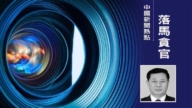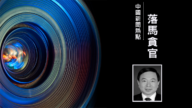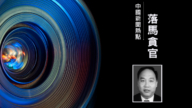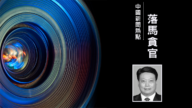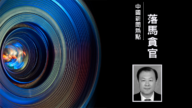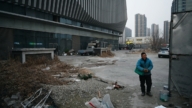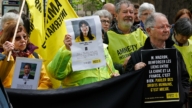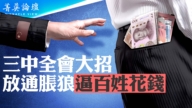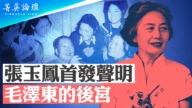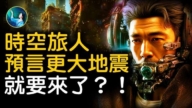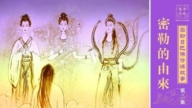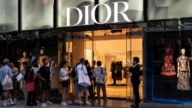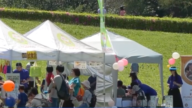【新唐人2014年12月13日讯】日前,中共规定,中纪委向中共7大中央一级机构,派驻纪检组进行监督和调查。这在中共历史上尚属首次。不过,也引发外界对中纪委至上的担忧。有评论指出,中共当今这种反腐的办法,能够达到一定的效果,但是由于中共的高层机构一直缺乏监督,万一发生腐败,有又谁可以来监督他们?
12月11号,中共出台了《关于加强中央纪委派驻机构建设的意见》,决定逐步统一向中办、国办、人大、组织部、宣传部、统战部、政协等7大中央一级机关派驻纪检组,监督这些部门的中共领导。派驻机构将覆盖全部中共中央一级党和国家机关。
这是中共历史上首次由中纪委向党的工作部门和人大机关、政协机关派驻纪检组。这些派驻的纪检组直接由中纪委领导,发现重要问题向中纪委报告;初步核实反映所驻部门领导及中管干部的问题线索;受理对所驻部门人员的检举、控告。
《亚洲新闻周刊》总监黄金秋:“短期内是有效的,不能建立一个长期的反贪机制,在中共这种缺乏监督的环境之中,权力寻租的空间很大,这些纪检官员会不会和这些要害部门的领导互相勾结,假如这些派出机构腐败,中纪委该怎么办,中纪委书记换成其他人,他腐败了怎么办,习近平能保证将来担任他这个职位的人,也像他那样有反贪的决心和清廉的家风吗?不可能做到。”
据党媒报导,在140多家中共的一级党和国家机关中,中纪委的派驻机构,加上新增的7大机关,将达到60个。
新出台的《意见》则着力为中纪委派驻机构树立权威。《意见》规定,派驻的纪检组与驻在部门是监督与被监督的关系,对所驻部门机关纪委和直属单位、省级垂管单位的纪检工作进行指导检查等。
派驻机构负责人可以参加或列席所驻部门的领导会议,经批准可查阅或复制所驻部门的有关文件、资料、财务账目等材料;还可对有关领导的材料进行查阅和调查核实;派驻机构提出的意见和建议,所驻部门无正当理由的应当采纳。另外,派驻机构负责人还可约谈所驻部门管理的干部。
而在前一阵中共的反腐运动中,被中纪委约谈后,官员跳楼的事件时有发生。
黄金秋:“纪委不是司法机构,它可以把一个官员直接带走,失去自由,是不是也没有符合依法治国的概念,当然我们也不能求全责备,但是更长远来讲,我希望习近平先生、王岐山先生能够真正从对国家有利的角度,把反贪纳入国家法律体系内,而不是用一个党来代替国家,代替国法。”
《亚洲新闻周刊》总监黄金秋指出,如果要想实现制度性反腐,必须拥有新闻自由,和健全的民主机制。
大陆时政评论员陈明慧:“在未来的中国,如果中国的民主自由宪政走向一个光明健康正常的国家的话,那个时候贪污腐败都不是什么大的问题,迫害人权,迫害信仰团体,迫害民主人士异议人士手上累累的血债,必须彻底清算,中国才可能有条件,有基础走向政治清明。”
大陆时政评论员陈明慧认为,目前中纪委进驻中共的最高层机关,还是属于“习江斗”的一部分。
时事评论员夏小强也向美国《大纪元新闻网》表示,中纪委进驻七部门,其实主要的目标是人大和中宣部,其余的都是陪衬。因中共政治局常委张德江和刘云山掌控的人大与中宣部,是江派在台面上对抗习近平的主要机构。
黄金秋指出,中共的最高层一直缺乏监督,腐败必然极其严重,不过,党内反腐不可能达到清廉,必须有民众参与,党外监督。
采访编辑/刘惠 后制/葛雷
Central Anti-Corruption Inspection Teams Now Stationed in 7 Core Sectors
The Chinese Communist Party (CCP) recently had its Central Discipline Inspection Commission (CDIC) send inspection teams to monitor and investigate 7 central level organizations. It’s the first time the CCP has done this. But it also caused worries in society. Comments say the current anti-corruption method of the CCP has had some effect. However since the high level officials of the CCP have had no supervision, who can monitor them if there’s corruption?
On Dec. 11, the CCP issued a plan to dispatch inspection teams to 7 central level sections. These included the Central Office, Station Council, National People’s Congress, Central Organization Department; Central Propaganda Department, Central United Front Work, and, The office of Chinese peoples’ Political Consultative Conference. The inspection is to supervise the communist leaders of those organizations, the plan says. The inspection teams will cover the entire central organizations of the party and state.
It’s the first time in CCP history that the CDIC has sent an inspection team to party departments, NPC sectors, and the CPPCC sectors. The inspection teams are directly instructed by the CDIC. All important discoveries will be reported to the CDIC. The CDIC will confirm the issues of the reported leaders, and receives reports and complaints to staff in the offices.
Huang Jinqiu, director of Asian News Weekly, “It’s effective in the short term, but it can’t establish a long term anti-corruption mechanism. The CCP has been lacking a supervised environment, and there’s a lot of room for abuse of power. Would the inspection team officials collude with leaders in those core sectors? What if the inspection organization is corrupt? What if the secretary of the CDIC is corrupt? How could [president] Xi Jinping guarantee his successor would be as determined to fight against corruption as him? It’s impossible."
Party media reported that from over 140 party and state organizations, the central inspection teams have stationed in 60, including the newly inspected 7 core sectors.
The new plan is to establish authority of the CDIC’s inspection teams. The plan says inspection teams and stationed organizations is to supervise and being supervised. The inspection teams gives instruction and inspection to the stationed organizations and the units under them.
The inspection team managers are allowed to participate in leadership meetings of the inspected sectors. They are allowed to review all the documents, financial accounts etc. of the inspected sectors with permissions. They can also inspect and investigate material from leaders. The inspected sectors must unconditionally accept all comments and suggestions made by the inspection teams. The inspection team manager can also interview every cadre at management level of all departments.
Official suicides often happened after interviews by the CDIC during the previous anti-corruption campaign.
Huang Jinqiu, “The CDIC is not a judicial body. It can directly take an official away, removing his freedom. Is it not applying the rule of law? Of course, we can’t demand perfection, but for long term, I hope Mr. Xi Jinping and Mr. Wang Qishan can truly think from the vantage point of the state, to include anti-corruption in the national legal system. The party can’t take place of the nation and the law."
Huang indicated that to realize institutional anti-corruption, China must have press freedom and democratic mechanism.
Chen Minghui, mainland Chinese political commentator, “In the future, if China becomes a normal healthy country with democracy and liberal constitutionalism, corruption won’t be a big issue. It must completely eliminate the persecution of human rights, of faith groups, and democratic dissidents. Only then, can China have the foundation to have a bright future."
Chen believes that the inspection of the CCP’s top level organizations is part of the struggle between Xi and Jiang.
Political commentator Xia Xiaoqiang told U.S. based Epoch Times that the main targets of the plan are the National People’s Congress and the Propaganda department. The rest are just add-ons. CCP Politburo Standing Committee members Zhang Dejiang and Liu Yunshan control the NPC and the Propaganda Department, which are major organizations under Jiang’s faction to fight against Xi Jinping.
Huang pointed out that the CCP top level has always lacked supervision, and the corruption is certainly serious. But the anti-corruption campaign inside the party can’t work unless citizens can participate to provide outside supervision.
Interview & Edit/LiuHui Post-production/GeLei



